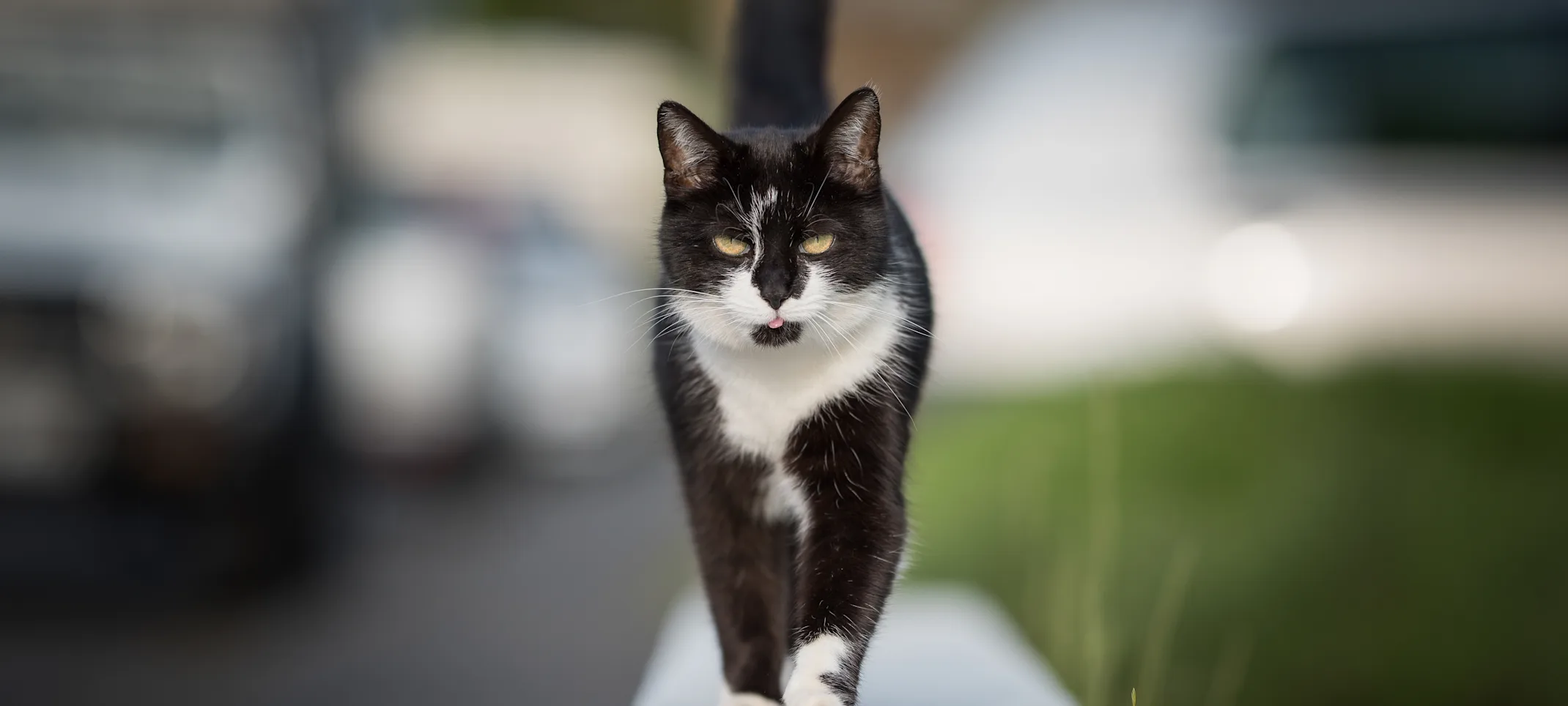Cat Thyroid Center
The Disease

What is Feline Hyperthyroidism?
Hyperthyroidism is a clinical syndrome due to excess thyroid hormone and its clinical consequences. It is the most common endocrine disease of middle-aged and older domestic cats. A silent killer, it relentlessly takes its toll on body organs.
Symptoms and Signs of Hyperthyroidism?
The clinical manifestations of the disease are multisystemic and relate to increased metabolic rate. Owners often overlook early symptoms or assume the changes are a normal part of the aging process. Obvious weight loss is usually the problem that takes the cat to their veterinarian. Other signs include tachycardia (rapid heart rate), muscle weakness, goiter, tachyarrhythmia (irregular heart rhythm), hyperexcitability, polyphagia (increased appetite), heat intolerance, increased frequency of bowel movements, polydipsia (increased thirst), polyuria (increased urination), vomiting, and an unkempt hair coat.
Left untreated, cardiac disease progresses to heart failure, hypertrophic cardiomyopathy and eventually leads to death. Some patients may be surprisingly asymptomatic despite severe chemical hyperthyroidism, particularly in the early stages of the disease (apathetic hyperthyroidism).
What Causes Feline Hyperthyroidism?
Most cases are caused by adenomatous hyperplasia of the thyroid gland. A benign adenoma (tumor) develops in the thyroid gland. This change in the gland probably has a nutritional, environmental, genetic, or multifactorial etiology which is still unknown. The result is uncontrolled production of thyroid hormones, L-thyroxine (T4) and triiodothyronine (T3). In healthy cats, the amount of thyroid hormone in the blood is regulated by the pituitary gland through a negative feedback mechanism involving thyrotropin (TSH).
But in hyperthyroid cats, this normal endocrine regulation goes awry, and the gland continually pours large amounts of thyroid hormones into the blood. The resultant condition is hyperthyroxinemia and life-threatening hyperthyroidism.
If you have questions regarding the treatment of Feline Hyperthyroidism and how we can help your cat, visit the contact page and fill out the Inquiry Form and a representative will contact you.
